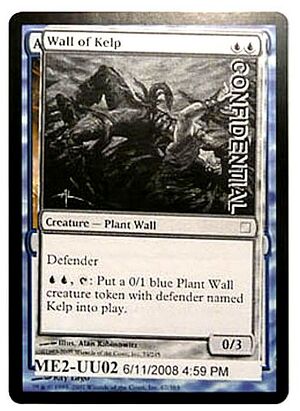Playtest: Difference between revisions
>Hunterofsalvation No edit summary |
>Yandere-sliver m (→Design: clean up) |
||
| Line 9: | Line 9: | ||
| accessdate = 2006-09-02 | | accessdate = 2006-09-02 | ||
| date = 2006-01-19 | | date = 2006-01-19 | ||
| publisher = Wizards of the Coast, Inc | | publisher = Wizards of the Coast, Inc | ||
}}</ref> | }}</ref> | ||
| Line 19: | Line 18: | ||
| first = Daron | | first = Daron | ||
| date = 2006-02-18 | | date = 2006-02-18 | ||
| publisher = MTGSalvation.com | | publisher = MTGSalvation.com | ||
}}</ref> The case was settled out of court, and the terms of the settlement have been sealed.<ref>{{cite web | }}</ref> The case was settled out of court, and the terms of the settlement have been sealed.<ref>{{cite web | ||
| Line 28: | Line 26: | ||
| first = Daron | | first = Daron | ||
| date = 2006-04-06 | | date = 2006-04-06 | ||
| publisher = MTGSalvation.com | | publisher = MTGSalvation.com | ||
}}</ref> | }}</ref> | ||
Revision as of 06:35, 17 March 2019

A playtest is the process by which individual cards, as in card design, or sets of cards, as in decks, are played to test the card or cards for design issues to establish a desired quality.[1][2]
Design
Playtest cards often have specific card codes, to make them recognisable for the playtesters.[3][4][5] They are highly confidential. In early 2006, Wizards of the Coast filed a lawsuit against Daron Rutter, a moderator from MTG Salvation, for posting playtest cards for upcoming Magic: The Gathering card sets.[6] The lawsuit accused him of engaging in copyright infringement, contributory copyright infringement, trade secret violation, unjust enrichment, and breach of contract.[7] The case was settled out of court, and the terms of the settlement have been sealed.[8]
Deckbuilding
Deck playtesting involves testing a given deck against popular decks in a format's metagame and accordingly modifying the decklist, its main deck and its sideboard, to better deal with those decks.[9]